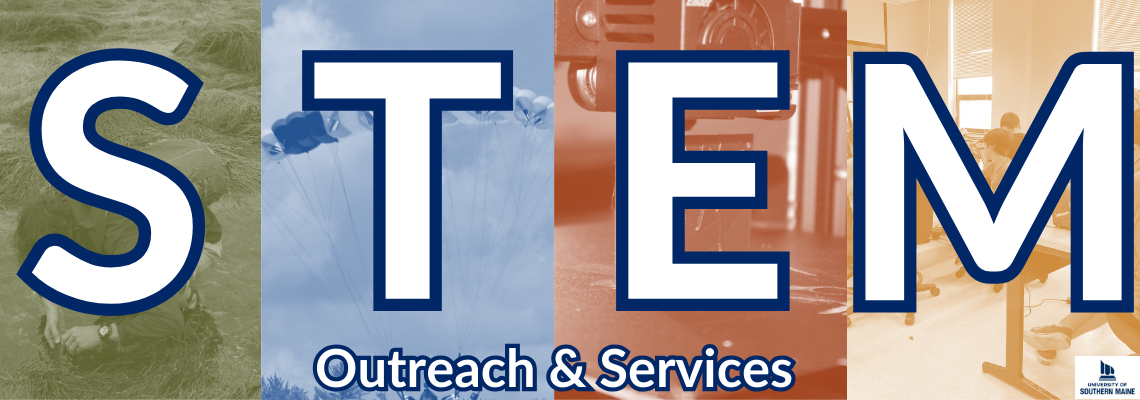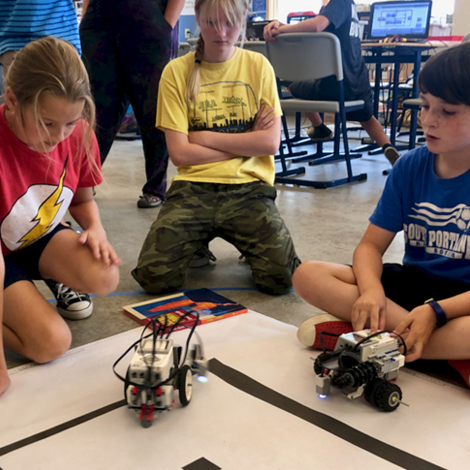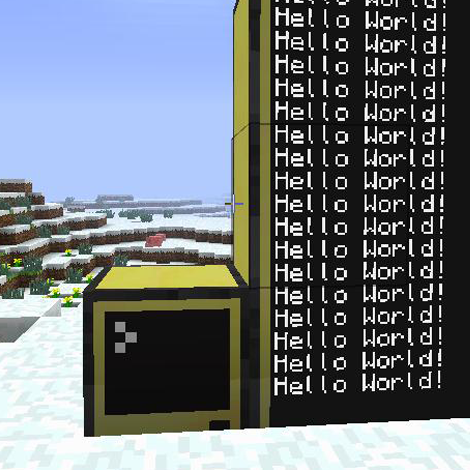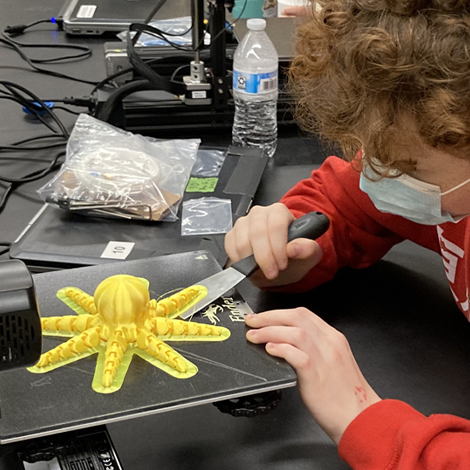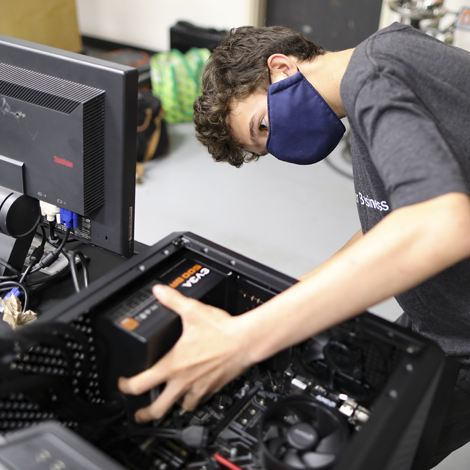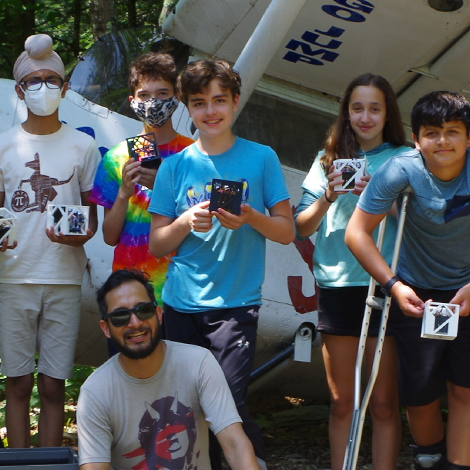Our Camps
Our academic camps cover a range of topics in science, technology, engineering, and math (STEM), and are offered in several locations throughout the state of Maine. For ages 9-17, these sessions build skills and help foster creativity, learning, and exploration. Please note, not all camps are offered at all locations. See below for the camp topic offerings:
LEGO Robotics
Explore engineering and programming concepts using the LEGO robotics platform. With the LEGO SPIKE Primes or LEGO Mindstorms EV3 kits, campers design and build robots to tackle various challenges. Campers program their bots using a block-based coding language to tackle various challenges, and interact with several different sensors such as “touch” sensors (buttons), color sensors, and ultrasonic sensors. Campers use the skills they learn throughout the session to complete mazes, traverse obstacles, and navigate various challenges by following the engineering design process: defining the problem, brainstorming, developing, testing, and repeating until it works! No experience required, this camp is for entry-level and intermediate LEGO roboteers ages 9-12.
Minecraft Camps – Programming and Astrophysics
With over 173,000,000 active users, Minecraft is one of the world’s top games. It is also one of the most popular game-based learning environments, finding its way in hundreds of classrooms to teach concepts such as math, history, language arts, and digital citizenship. We have two Minecraft-based STEM camps: Programming in Minecraft and Astrophysics in Minecraft.
Programming in Minecraft introduces coding concepts through in-game block-based coding, in which campers use a version of the Lua language to interact with the in-game world. Campers use the knowledge they learn throughout the camp to design and code their own “mods” – custom content and modifications in the game that work with their at-home (PC) versions of the game. Time is set aside to “just play the game”, but the camp focuses on learning new skills and becoming more familiar with programming and problem solving. Open to ages 10 to 14, no experience needed.
Astrophysics in Minecraft explores Minecraft worlds that simulate real astrophysical phenomena. Has the science behind the movie Interstellar intrigued you? Or have you ever wondered what if the Earth had no moon? Two moons? What criteria need to be met for a planet to be habitable? Campers use command-line tools to make observations and collect data about different stellar bodies: gravity, temperature, atmosphere, oxygen level, and other variables using simple in-game commands. Campers record, analyze, and compare findings with each other, and then create an end-of-week presentation to showcase what was learned throughout the camp. Open to ages 10-16, no experience needed.
3D Printing & Design
Explore the entire fabrication process using 3D printing technology in our 3D Printing & Design camp. Campers start the camp by assembling their own 3D printer (in 2023, it was the Ender 3 Pro V2) while learning about the components and functions of the machine. Campers also explore the world of 3D design by using 3D modeling programs such as SketchUp, TinkerCAD, or others (depending on instructor), as well as learning how to optimize these designs for printing. This session will also focus on calibrating the machines; starting and finishing the print; fixing errors; and all the details that make 3D printing both challenging and rewarding. At the end of the week, campers take home their new printer, all the cool things they’ve created, and 3D filament to kickstart their printing journey at home. Open to ages 12 to 16, no experience needed.
Build Your Own Computer Camp
Learn about the technology and components that make modern desktop computers work – and use that knowledge to assemble one to take home. In our Build Your Own Computer Camp, participants learn about what comprises a typical desktop computer – the terminology, the purpose, and how everything works together in a finished machine. Campers learn how all of the different components of a computer fit together, both physically and electronically. While assembling their own personal computer, campers will also learn computer architecture basics, as well as practical computer assembly and maintenance concepts.
The typical finished computer is a solid, mid-range build with basic peripherals (monitor, keyboard, mouse). While not a $2,000+ high-end gaming machine, campers will leave with a great first PC, and also leave with the knowledge of how to upgrade it in the future (if they choose to do so). Open to ages 12 to 16, no experience needed.
CubeSat
CubeSats – square shaped, Rubik’s cube-sized miniature satellites – are a revolutionary development that is making satellite technology more accessible. Found in educational environments, as well as government/industrial sectors, CubeSats have been used for a huge range of projects – including going to Mars. In our camp, campers use programmable sensor packages and 3D printed cases to build their own CubeSat modules. CubeSats are designed to be nanosatellites and while ours won’t be going into space, they are very similar in design as the 1200 CubeSats that have gone into space so far. Each camper will be bench testing them, and at the end of the week, weather allowing, the campers will go to a nearby airfield where their CubeSats will be taken up to a high altitude (14,000 feet). The CubeSats will collect data that the students will then be able to analyze when the CubeSats are returned to Earth. Campers will be able to keep their CubeSats at the end of the camp, and will have gathered enough knowledge during the session to reprogram it on their own. For ages 13-17, no experience needed.
